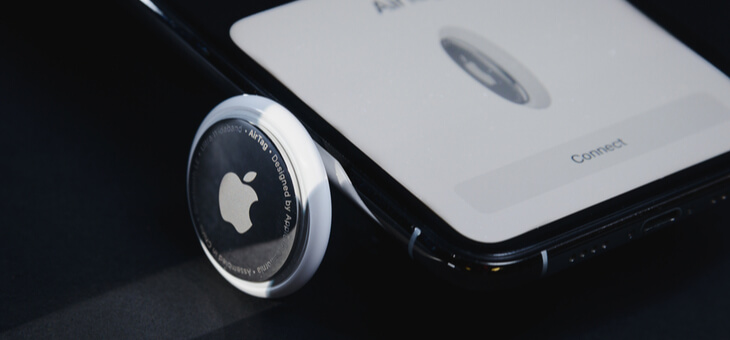GPS tracking devices such as Apple’s AirTags are becoming increasingly popular. They might help you find your keys, but are we unknowingly broadcasting our every move to those we really shouldn’t be?
Tracking devices using the Global Positioning System (GPS) satellite network to determine location are common in the modern world.
From following our food deliveries to tracking incoming flights, instant access to location data for any number of things is usually just a few buttons away. The devices are used widely in business.
In fact, most of us carry a GPS tracking device in our pockets at virtually all times – our smartphones.
Taking the concept further, products such as Apple’s AirTag and those made by LandAirSea and Tile are designed to help users find lost items, by placing a small receiver unit on the item that can send you the item’s location by making a sound to help you find it.
Read: Australians want more control over their privacy online
The idea is to stick them to items you regularly misplace such as your phone, wallet or keys so when you inevitably lose them you can be alerted to their location instantly.
While these products are undoubtedly useful for finding your things, there is a darker side to this technology and the privacy implications of these devices are concerning.
There is nothing stopping someone from discreetly placing trackers on people without their consent. Victims could be tracked by potential stalkers; trackers could be secretly placed in cars to make them easier to steal later and spouses could be tracked by abusive partners.
It’s also possible to install tracking software on a person’s phone, but that requires access to the phone and also knowing their passcode. These devices can be placed discreetly without the subject’s knowledge.
Alyson Messenger, a lawyer who works with domestic violence survivors, told the Australian Financial Review she knows of multiple cases of women stalked by former partners using AirTags and that other cases are “flying under the radar”.
Read: How older Australians can fight back against scammers
“It’s insidious because the devices are so discreet and unnoticeable,” she says.
“We suspect it is happening and victims don’t know.”
Manufacturers such as Apple have built-in safeguards against unwanted tracking such as alerting iPhone users when an unknown AirTag is travelling with them.
Apple acknowledges the privacy concerns but says misuse of their products is a matter for local authorities.
“AirTag was designed to help people locate their personal belongings, not to track people or another person’s property, and we condemn in the strongest possible terms any malicious use of our products,” Apple says.
“Apple has been working closely with various safety groups and law enforcement agencies. Through our own evaluations and these discussions, we have identified even more ways we can update AirTag safety warnings and help guard against further unwanted tracking.”
Read: Apple will finally let you fix your own phone, but there’s a catch
But domestic violence advocacy groups remain unconvinced. Domestic Violence NSW (DVN) says that in around 85 per cent of abuse cases some form of electronic tracking is used, and products like these will only provide another avenue of control.
“We know that one in six women can confirm that they’ve been stalked by technology,” DVN CEO Delia Donovan told Channel Nine when AirTag was launched in Australia.
“This is now another weapon for perpetrators.”
Would you consider using a GPS tracking device? Should these devices be available for sale in Australia? Let us know in the comments section below.
If you enjoy our content, don’t keep it to yourself. Share our free eNews with your friends and encourage them to sign up.

